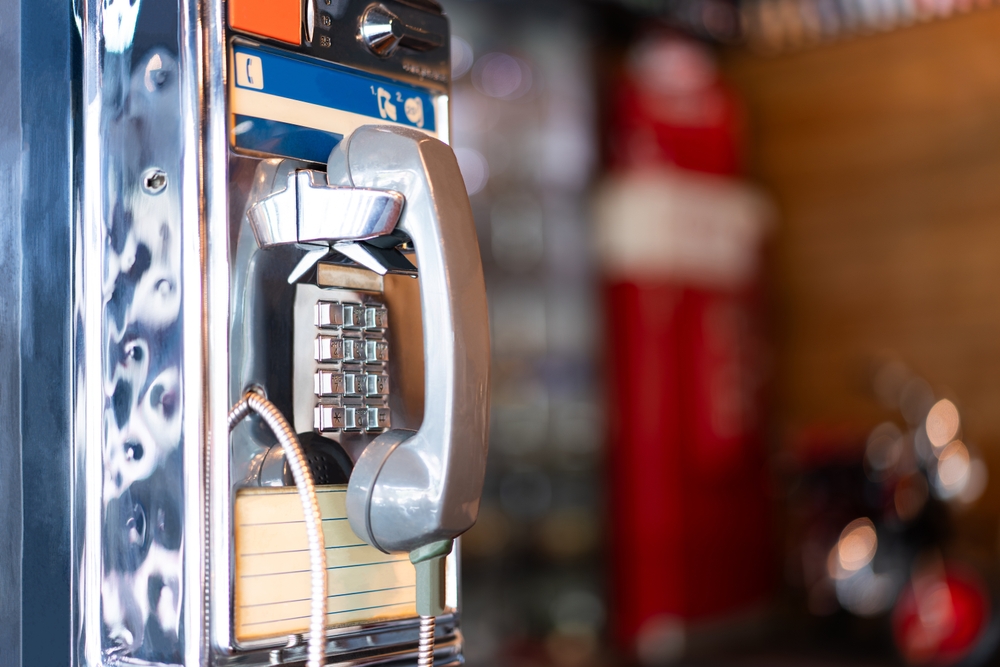Let’s be honest: every generation has its quirks, but boomers seem to have a special knack for holding onto things that now land in the cringe or controversy zone. From outdated slang to cultural staples, what once felt classic is suddenly walking a tightrope in today’s hypersensitive climate. It’s less about judging and more about recognizing how tastes evolve—and sometimes, how nostalgia can be a landmine. Here are 15 boomer favorites that, in 2025, might just get them canceled—or at least raise a few eyebrows.
1. Casual Use Of Racial Stereotypes In Jokes

Boomers often grew up in a time when casual racial humor was a go-to for “harmless” laughs. What was once perceived as playful banter now rings loud and wrong, reminding us how language shapes social boundaries. As explained in a 2016 study published in the Journal of Adolescence and available via the National Institutes of Health, race-based humor and ethnic/racial teasing, even when perceived as jokes, communicate discriminatory messages that negatively impact adolescents’ mental health, increasing anxiety, depression, and stress. These jokes, though often shared without malice, have no place in a world committed to equity and respect. The generational disconnect here is stark—what once passed as humor now fuels real harm and calls for accountability.
Attempting to laugh these off today can backfire fast, especially on social media, where every word is scrutinized. Even within private circles, the awareness that these jokes normalize stereotypes has forced many to rethink their comedy archive. Boomers’ attachment to these “classic” jokes sometimes clashes with younger generations’ calls for more thoughtful humor. It’s a lesson in how cultural context can quickly shift what’s acceptable.
2. Calling Everything “Political Correctness Gone Mad”

Boomers frequently express frustration over “political correctness,” as if the concept is a new-age attack on freedom rather than a call for decency. This dismissal often masks resistance to acknowledging evolving social norms around race, gender, and identity. Framing these conversations as “PC gone mad” not only invalidates others’ experiences but also places boomers on the defensive side of cultural progress. It’s less a rebellion and more a refusal to adapt.
The phrase has become a knee-jerk rebuttal whenever someone suggests a more inclusive or sensitive approach. Younger generations, however, see political correctness not as censorship but as a basic respect framework. Boomers’ nostalgic gripe glosses over the fact that what was once normal often excluded and hurt marginalized groups. Recognizing this gap is essential to moving beyond generational stalemates.
3. Hoarding Physical Media Collections

Whether it’s stacks of CDs, VHS tapes, or those precious vinyl records, boomers cling hard to their physical media. This love is tied to a tactile nostalgia for “real” music and movies, but it also looks wildly out of sync with streaming culture. Digital natives can’t quite understand the emotional gravity of a well-curated shelf, though the resurgence of vinyl is making some converts. Still, in the eyes of Gen Z, hanging onto piles of outdated tech might seem more stubborn than sentimental.
According to eBay’s research on the resurgence of physical media, there is a surprising trend where even digital natives—those aged 18-24—are driving renewed interest in physical formats like books, CDs, vinyl, DVDs, and video games. Preserving these collections also means defending old content that doesn’t always hold up ethically or aesthetically. It raises questions about which parts of culture we choose to immortalize and why. For boomers, it’s a shrine to their youth; for others, a reminder of the limits of the past. This love affair with analog can feel like a refusal to embrace the digital future fully.
4. The “Back In My Day” Narrative

Few catchphrases encapsulate boomer nostalgia like the “back in my day” lament. It’s a shorthand for longing and often an implicit critique of modern life, usually pitched with a heavy dose of condescension. While it can serve as a genuine reflection of societal changes, it risks alienating younger generations who are navigating their complex realities. The phrase tends to flatten history into a simplified good-old-days myth.
This narrative style sometimes glosses over the systemic inequalities and struggles that marked their formative years. It also undercuts the real innovations and social progress happening now. Instead of bridging generational divides, the “back in my day” trope can deepen misunderstandings and frustration. A more nuanced conversation about change would resonate better across age gaps.
5. Obsession With Traditional Gender Roles

Boomers often champion clear-cut gender expectations—men as breadwinners, women as homemakers—that feel archaic to many today. This preference sometimes surfaces in casual remarks or implicit assumptions about how people should dress, behave, or aspire. While it’s partly rooted in the social norms of their youth, clinging to these roles can invalidate the fluid identities younger generations embrace. It also risks reinforcing a world that’s still unevenly structured by gender.
The pushback from younger people is not just ideological but practical, as rigid roles don’t reflect modern economic and social realities. Research from King’s College London reveals significant generational divides in attitudes toward gender equality, showing that younger generations, including Gen Z, hold more progressive views on gender roles compared to older cohorts who often maintain more traditional perspectives. Boomers’ attachment to these roles sometimes makes intergenerational conversations fraught. Progress demands questioning inherited norms, not defending them out of habit or comfort. Gender, like culture, is a moving target.
6. Eating Meat At Every Meal Without Question

Meat as the centerpiece of every meal is a boomer default that younger generations increasingly challenge for health, environmental, and ethical reasons. This dietary habit is less about preference and more about tradition, often unquestioned and unexamined. As plant-based diets gain momentum, the boomer meat-heavy menu starts looking like a relic of overconsumption. It’s an easy target for cancel culture when animal rights or climate activism enters the conversation.
Meat-heavy eating also highlights a broader generational gap in how food relates to identity and values. While boomers might see meat as a symbol of prosperity and satisfaction, others see it as a site for reflection on sustainability. Shifting dietary habits becomes a cultural battleground where nostalgia meets responsibility. The challenge lies in balancing comfort with consciousness.
7. Using Outdated Slang Like “Groovy” Or “Far Out”

Boomers still tossing around “groovy,” “far out,” or “cool beans” might think they’re preserving a cultural vibe, but younger ears mostly hear a time capsule. This slang, once emblematic of rebellion and fun, now risks sounding out of touch or even ironic. The words are charming, but they also mark generational distance in speech and cultural references. It’s less about cancel culture and more about linguistic evolution. In a recent article by the New York Post, Merriam-Webster added 200 new words to its 2024 dictionary edition, including many Gen Z slang terms, highlighting how language evolves and some older slang like “groovy” has become dated and less relevant to younger generations.
The real cringeworthy moment is when boomers try to revive these terms in earnest instead of with a wink. Younger generations have their vernacular, and while some terms stick around, most fall away. Language moves fast, and slang is the first to expire. Embracing that keeps communication fresh and relevant.
8. Defending Iconic Yet Problematic TV Shows

Boomers often cite shows like *Friends* or *The Cosby Show* as the pinnacle of television, overlooking problematic elements such as racial stereotyping or outdated social norms. These shows shaped their cultural landscape, but with modern scrutiny, many are now critiqued for exclusion or insensitivity. Defending these classics can come off as an unwillingness to confront how media reflect and reinforce inequality. It’s a cultural reckoning that boomers sometimes resist.
This defense is understandable, but it limits meaningful discussions about representation and progress. Acknowledging flaws doesn’t erase nostalgia; it enriches understanding. Younger viewers demand media that reflects diverse experiences, pushing beyond rose-tinted retrospectives. Media literacy means questioning the past as well as celebrating it.
9. Insisting On Paper Maps Over GPS

There’s something almost sacred about a boomer unfolding a paper map, tracing routes with a finger, refusing to trust digital navigation. It’s about control, reliability, and a slower, more deliberate way of traveling. But in 2025, it can feel like stubborn defiance in the face of convenience and tech efficiency. Younger travelers see it as impractical, sometimes even a little performative.
The love of paper maps also symbolizes broader resistance to digital change, from communication to information access. While the tactile experience is appealing, the refusal to adapt can cause friction. Embracing tech doesn’t erase tradition, but rigid rejection stalls progress. Sometimes nostalgia can hinder practical navigation.
10. Overuse Of The Term “Fake News”

Boomers popularized “fake news” long before it became a weaponized term in political discourse. Initially, a catchall for misinformation, its overuse now often signals distrust or dismissal of inconvenient facts. When boomers lean on it to reject expert consensus or media critiques, it muddles important conversations about truth and evidence. The phrase’s degradation is partly generational but also tied to broader media shifts.
Younger generations, bombarded by disinformation, are more cautious about the term and its impact. Overusing “fake news” can erode credibility and widen generational divides on media literacy. It’s a reminder that language needs care, especially in an age of information overload. Nuanced skepticism beats blanket dismissal.
11. Clinging To Classic Car Models Over Electric Vehicles

Classic cars are a boomer passion point, symbolizing freedom, style, and identity from a bygone era. But their resistance to embracing electric vehicles sometimes places them at odds with climate priorities and technological innovation. This love affair with gas guzzlers risks being read as a refusal to engage with urgent environmental challenges. The nostalgia for classic cars isn’t just aesthetic; it’s political.
Younger drivers often prioritize sustainability and tech integration, valuing cars as tools for future living. The emotional attachment boomers have to traditional engines clashes with this pragmatic outlook. Transitioning car culture means balancing heritage with responsibility. The future demands both respect and reinvention.
12. Insisting That “Real Music” Died After Their Era

Boomers often dismiss contemporary music, proclaiming that the golden age ended decades ago. This claim, repeated in countless conversations, reveals a deep attachment to the soundtrack of their youth. But it also dismisses innovation and diversity flourishing in today’s scene. Music, like culture, evolves, and “realness” is subjective.
This mindset can alienate younger fans and musicians who see themselves building on, not betraying, past legacies. While it’s natural to cherish formative sounds, shutting out new expressions limits cultural dialogue. Embracing musical evolution enriches appreciation rather than diminishing it. Every era brings its realness.
13. Preferring Landlines Over Smartphones

Landlines represent a time when calls were deliberate and conversations unhurried, which many boomers still prefer. The immediacy and multitasking of smartphones sometimes feels overwhelming or invasive. But rejecting smartphones outright creates communication gaps with younger people who live on digital platforms. It’s a classic clash between analog comfort and digital integration.
This preference also reflects different values around accessibility and technology’s role in life. Smartphones are tools for connection, work, and creativity today, not just phones. Adapting doesn’t mean abandoning tradition, but it does mean evolving with the times. Bridging this gap requires empathy on both sides.
14. Collecting Excessive Souvenirs And Trinkets

Boomers often have entire rooms dedicated to souvenirs from every vacation or milestone, a physical archive of memory. While this makes sense as a personal narrative, minimalists and younger generations sometimes see it as clutter or consumer excess. The contrast reflects shifting values around materialism and experience. For boomers, tangible keepsakes validate history; for others, memories live digitally or internally.
This accumulation also raises questions about sustainability and the environmental impact of stuff. The trend toward “less is more” challenges boomer collecting habits. It’s a cultural crossroads between legacy and lifestyle. Reevaluating what to keep can be a meaningful way to honor the past without drowning in it.
15. Watching Cable News As The Only News Source

Boomers grew up trusting cable news as the primary window to the world, but today, it’s often seen as biased or outdated by younger audiences. This habit can create an echo chamber, limiting exposure to diverse perspectives available through digital platforms. Clinging to traditional news sources risks disconnecting boomers from the evolving media landscape and its critical conversations. It’s less about cancel culture and more about cultural shift.
Younger generations consume news through social media, podcasts, and niche outlets, valuing variety and immediacy. The challenge for boomers is balancing familiarity with curiosity about new formats. Media literacy requires openness to change, not just loyalty to the known. News habits reflect how generations engage with the world differently.

Abisola is a communication specialist with a background in language studies and project management. She believes in the power of words to effectively connect with her audience and address their needs. With her strong foundation in both language and project management, she crafts messages that are not only clear and engaging but also aligned with strategic goals. Whether through content creation, storytelling, or communication planning, Abisola uses her expertise to ensure that her messages resonate and deliver lasting value to her audience.


